


BLUEJACKET BOOKS
NAVAL INSTITUTE PRESS
Annapolis, Maryland
The latest edition of this work has been brought to publication with the generous assistance of Marguerite and Gerry Lenfest.
Naval Institute Press
291 Wood Road
Annapolis, MD 21402
1982 by Walter G. Winslow
All rights reserved. No part of this book may be reproduced without written permission from the publisher.
Third printing hardcover, 1989
First Bluejacket Books printing, 1994
ISBN 978-1-61251-365-2 (eBook)
The Library of Congress has cataloged the paperback edition as follows:
Winslow, Walter G., 1912
The fleet the gods forgot.
Bibliography: p.
Includes index.
1. World War, 19391945Naval operations, American. 2. United States. Navy, Asiatic FleetHistory. 3. World War, 19391945Pacific Ocean. I. Title.
D767.W5 940.545973 81-85442
AACR2
 Print editions meet the requirements of ANSI/NISO z39.48-1992 (Permanence of Paper).
Print editions meet the requirements of ANSI/NISO z39.48-1992 (Permanence of Paper).
6 5 4 3 2
For my daughters: Allison, Julie, and Jacqueline
CONTENTS
While researching materials for another book (Shooting the War, of a World War II U-Boat Officer, Naval Institute Press, Annapolis, 1994), I came across an incident in World War II that told of a sole survivor of a naval warship sunk during a fierce battle in the Pacific. The story was so intriguing that I wondered if there were, perhaps, other sole survivors of similar incidents. The thought lingered with me for several months.
Finally, I decided to dig further into the subject, and with the help of various historical archive sources, sole survivor incidents began to surface.
The first concerned a 17-year-old girl who alone survived a plane crash in the Peruvian jungle in December of 1972. Ninety-one of her fellow passengers perished, including her mother who was sitting beside her. The frail survivor managed to find her way to civilization after nine days in the wilderness. After regaining her health, she pondered deeply about her survival. Why me? she asked. And why not my mother?
As I found more incidents of sole survivors I tried to gain a better perspective on why certain people survived catastrophes against all odds. Many were lucky. They were at the right place at the right time. Others seemed to possess such a tenacious will to live that they were able to endure unbelievable hardships and survive while others perished. Still others have never been able to find a satisfactory explanation for their good fortune.
I became so intrigued by the subject that I decided to chronicle a number of these stories. As a naval historian I stayed in familiar waters and selected those who survived the perils of the sea. Most occurred during World War II when the navies and merchant fleets of many nations, friend and enemy, roamed the seas of the world. To my surprise many involved submarines, especially German U-Boats.
Unfortunately, I was not able to interview many of the survivors since most have since sailed on to waters beyond the horizon. However, all accounts are true in their content. Official government documents, a wide array of historical reference sources, and, where possible, correspondence with survivor family members have been used.
Not being able to ask the question, Why me? of the survivors, I leave it up to the reader to answer this complex question while reading through the individual stories. After finishing the book, most readers will have found their own answers.
Captain James E. Wise, Jr., USN (Ret.)
Alexandria, Virginia
I am indebted to a number of people who helped in making this book possible. Id particularly like to thank Jack Taylor, ex-Royal Navy man, who survived U-boat sinkings while serving aboard British merchant ships during World War II. Also, I am indebted to Lieutenant Commander A. Hague VRD*RNR (Ret.) for his invaluable assistance throughout this project.
Others in the U.K. who deserve my gratitude include: Lionel Wheble, Maritime Royal Artillery Old Comrades Association; Terence C. Charman and Allison E. Duffield, Imperial War Museum; R.S. Horne, Marine Accident Investigations Branch; H.L. Cooper, Trinity House Lighthouse Service; Major J.D. Braisby RA (Ret.), Editor of Gunner magazine; Warrant Officer Writer B.J. Wead, Royal Navy, HMS Nelson; Brigadier K.A. Timbers, Royal Artillery Historical Trust; David Ashby, Naval Historical Branch, Ministry of Defence; Mrs. C. Freeman, General Register and Record Office of Shipping and Seamen, Department of Transportation; and P. Jarman, Guildhall Library.
I am most grateful to Mrs. Richard Ayers who shared information about her late husband with me. Also, Mr. Emrys Jones, relative of Captain Robert Jones, who provided most of the material used in the chapter, The Henry Stanley.
Prof. Dr. Jurgen Rohwer, Bibliothek fur Zeitgeschichte, as in the past, graciously took time out of his busy schedule to assist us. Horst Bredow, Director of U-Boot Archive in Cuxhaven, Germany, provided vital data and several of the photographic illustrations. And, my good friend and co-author of another book, Otto Giese, former U-boat Watch Officer, was ever present to lend a helping hand. My thanks also go to Herr Jamans, Bundesarchiv/Miltararchiv, Freiburg, Germany.
Regarding the lone survivors of the Italian submarine Archimede and the car ferry Moby Prince, I am indebted to Amm. Div. Renato Sicurezza, Ufficio Storico della Marina Militare, for his timely assistance.
Here in the U.S. there are many, many to thank for their professional expertise and research assistance. For the Poon Lim story I am indebted to Ruthanne Lum McCunn for her information and book on Lims experience, Sole Survivor. Also, Johnny Yee of the Chinese American Historical Society was most helpful in providing me with a vast array of materials on this unique story. Naval historian Eddie Rumpf proved to be an encyclopedia of information about sole survivors during World War II.
I am grateful to The Great Lakes Historical Society for the valuable data they provided on Captain Walter Grashaw and his harrowing experience on Lake Erie in 1916. I am also indebted to his son, Nelson, who gave me further personal insights on his father, an extraordinary sea Captain.
Id also like to extend my thanks to Timothy Mulligan and Rebecca Livingstone, National Archives, for their tireless pursuit of information on my behalf. And to my German translator, Marianne K. Driscoll, who worked with me throughout this project, a special Vielen Danka. Also, Id like to extend a special appreciation to Mrs. Susan Bacs, whose administrative skill in transposing our scribblings into a finished manuscript has been invaluable in this venture.
Next page

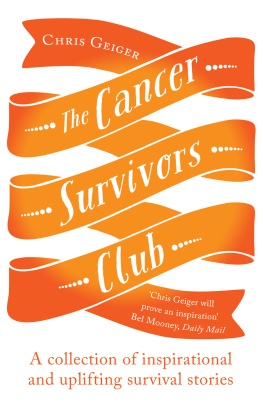
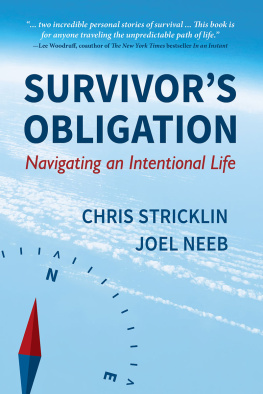
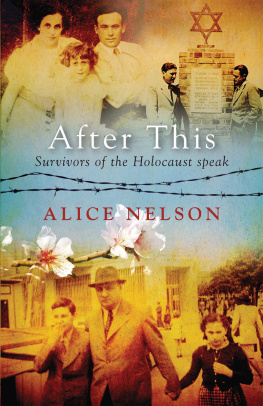
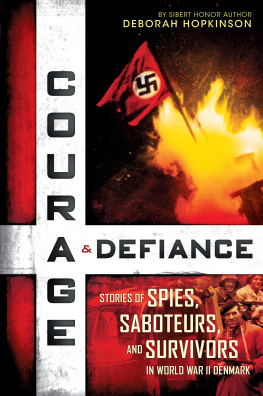
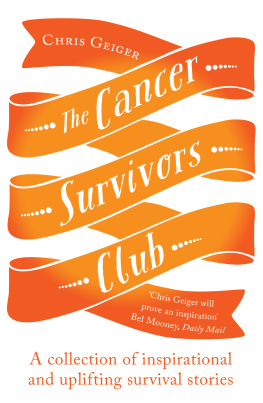
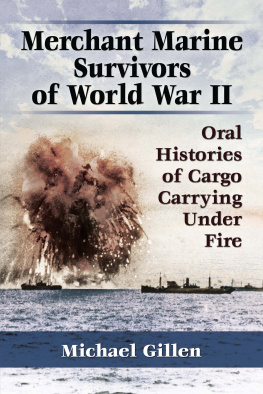
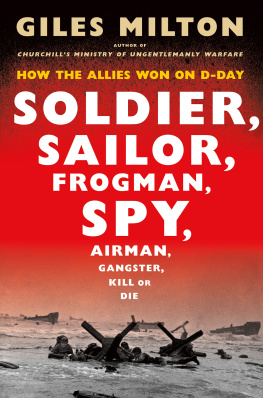
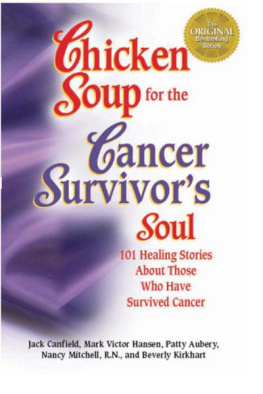



 Print editions meet the requirements of ANSI/NISO z39.48-1992 (Permanence of Paper).
Print editions meet the requirements of ANSI/NISO z39.48-1992 (Permanence of Paper).